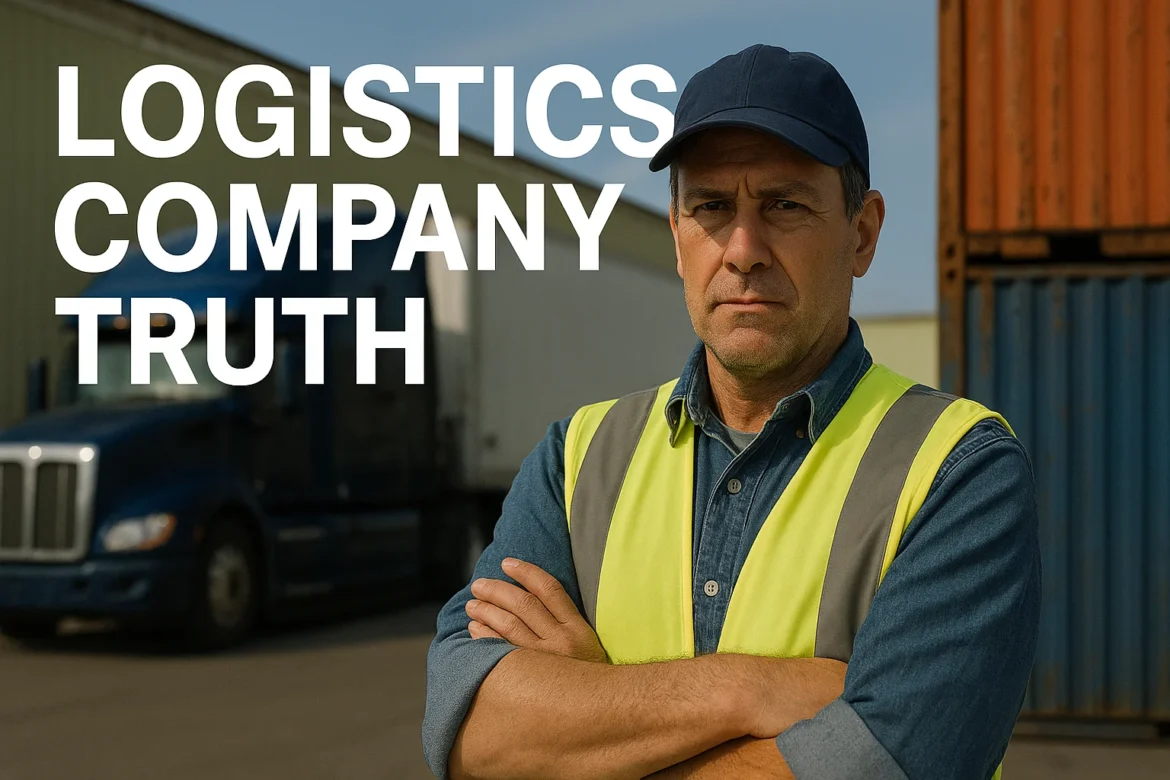In today’s fast-paced global economy, logistics companies are the backbone that keeps businesses moving. From delivering your online orders to transporting raw materials, these companies are everywhere. But behind the scenes, what do we really know about logistics companies? What are the hidden challenges, controversies, and realities they face? In this comprehensive article, we will peel back the curtain and reveal the shocking truths about logistics companies that most consumers and even business owners rarely see.
The Hidden Challenges Faced by Logistics Companies
Logistics-companies operate in a highly complex and competitive industry. On the surface, they seem straightforward—pick up, transport, deliver. But the reality is far more complicated. From rising fuel costs to labor shortages and regulatory pressures, these companies must constantly navigate a maze of obstacles. The logistics industry is vulnerable to economic shifts, geopolitical tensions, and technological disruption.
One of the biggest challenges logistics companies face is managing the supply chain’s unpredictability. Disruptions caused by natural disasters, pandemics, or political unrest can halt entire operations. The COVID-19 pandemic exposed this vulnerability, with many companies scrambling to adjust to sudden surges in e-commerce demand and supply chain bottlenecks.
The Environmental Impact of Logistics Companies
Another shocking truth is the environmental footprint of such companies. Transporting goods worldwide generates massive carbon emissions, contributing to climate change. Many logistics companies still rely heavily on diesel trucks, cargo ships, and airplanes, which are significant polluters.
While some logistics companies are investing in greener technologies like electric vehicles and sustainable packaging, progress is slow. The industry is under increasing pressure to adopt eco-friendly practices, but balancing cost efficiency with sustainability remains a challenge.
The Dark Side of Labor in These Companies
Behind the efficient delivery systems are often overworked and underpaid workers. Labor exploitation and poor working conditions are issues that many logistics companies have faced, especially in warehousing and last-mile delivery. Drivers frequently work long hours under stressful conditions, often with inadequate breaks or benefits.
Warehouse employees, who are essential for sorting and packing goods, also face intense pressure to meet strict quotas. This has led to numerous reports of workplace injuries and unfair labor practices within logistics companies. The rise of gig economy delivery drivers adds another layer of complexity, with many working as independent contractors without standard employee protections.
How Technology is Changing Logistics Companies
Technology is revolutionizing logistic companies, but not without growing pains. Automation, AI, and big data analytics promise faster, smarter supply chains. Many companies have adopted warehouse robots, GPS tracking, and predictive analytics to optimize routes and inventory.
However, the digital transformation also poses risks. The integration of new technologies can lead to job displacement, cybersecurity threats, and increased dependency on complex IT systems. Logistics companies must carefully manage these changes to maintain operational continuity while protecting their workforce.
Transparency Issues
Transparency is a critical factor in logistics, yet many companies struggle with it. Hidden fees, unclear delivery timelines, and lack of communication frustrate customers and businesses alike. Some logistic companies obscure pricing structures or impose unexpected surcharges, damaging trust.
Additionally, transparency about environmental and labor practices is often limited. Consumers increasingly demand ethical business practices, but logistics companies may not always provide clear disclosures. This opacity can hide critical issues that affect a company’s reputation and customer loyalty.
The Global Competition Among Logistics-Companies
The logistics industry is fiercely competitive, with countless companies vying for market share. Giants like DHL, FedEx, and UPS dominate the global stage, but numerous regional players also compete fiercely. This competition drives innovation and service improvements but can also push companies to cut corners to reduce costs.
This race to the bottom can impact safety standards, labor conditions, and environmental responsibility. These companies must find a balance between competitiveness and ethical business practices to succeed in the long term.
How Logistic Companies Affect Your Business Success
For businesses, choosing the right logistics-company can make or break operations. Reliable logistic companies improve supply chain efficiency, reduce costs, and enhance customer satisfaction. Conversely, working with unreliable logistics companies can result in delays, damaged goods, and lost sales.
Understanding the inner workings of logistic companies helps businesses make informed decisions. It’s crucial to evaluate providers not only on price but also on transparency, sustainability, and ethical labor practices.
The Future of Logistics Companies: Trends to Watch
The future holds both promise and uncertainty for logistics companies. E-commerce growth continues to fuel demand for faster and more flexible delivery options. Technologies like drones, autonomous vehicles, and blockchain are poised to disrupt traditional logistics models.
Sustainability will become an even greater priority, pushing logistics companies to innovate green solutions. Labor rights and fair wages will remain in the spotlight, demanding ongoing reforms. Those logistics companies that adapt quickly, prioritize transparency, and embrace ethical practices will thrive.
Why You Should Care About the Truth Behind Logistics-Companies
As consumers and business owners, we often take logistics companies for granted, focusing only on the end result—the delivery. But understanding the challenges, ethical issues, and innovations within logistics companies is vital. It empowers you to make smarter choices and supports businesses that prioritize sustainability and fairness.
Supporting transparent, responsible logistics companies encourages the entire industry to improve. Your demand for better labor practices, eco-friendly transport, and honest pricing can drive meaningful change.
Learn More About Logistics-Companies
If you want to dive deeper into the logistics industry, there are great resources available online. Websites like Supply Chain Dive provide news and insights on logistics companies and supply chain management. For sustainability practices in logistics, check out GreenBiz. These outlets help keep you informed on the evolving landscape of logistics companies.
READ MORE…
🔥 Top 10 Harbor Freight Must-Haves for DIYers in 2025

1 comment
[…] The Shocking Truth About Logistics Companies (Revealed) – allshifting.com on 🔥 Top 10 Harbor Freight Must-Haves for DIYers in 2025 […]